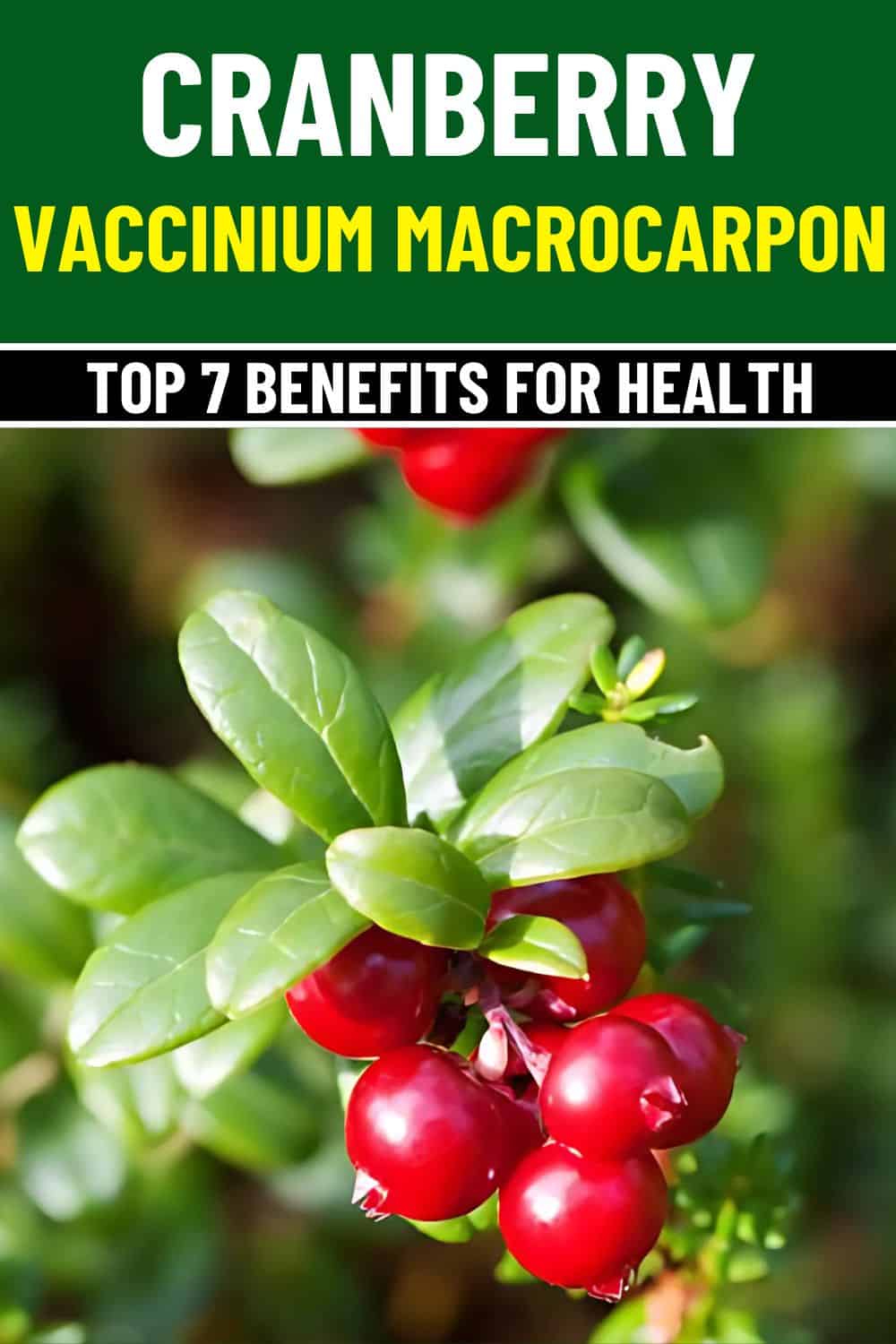Cranberries (Vaccinium macrocarpon) are small, tart berries packed with nutrients that offer a variety of health benefits.
Native to North America, they’ve been enjoyed for centuries, not only for their bold flavor but for their medicinal properties as well.
These little berries are a rich source of vitamin C, fiber, and powerful antioxidants that support everything from your immune system to your heart health.
#1. Supports Urinary Tract Health
Cranberries are well-known for supporting urinary tract health. The proanthocyanidins in cranberries prevent bacteria from sticking to the urinary tract, helping reduce the risk of UTIs.
In fact, a study in the Journal of Urology showed that cranberry juice can lower the recurrence of UTIs in those with frequent infections.
So, if you often suffer from UTIs, try adding cranberry juice or fresh cranberries to your diet to reduce your risk.

#2. Boosts Immune System
With 25 mg of vitamin C per 100 grams, Cranberries support your immune system by boosting your body’s natural defenses against colds and infections.
In addition to vitamin C, cranberries are rich in antioxidants that protect your cells from oxidative stress.
Regularly consuming cranberries can help strengthen your immunity, making it easier for your body to recover from illness.

#3. Supports Heart Health
First, cranberries are high in potassium (85 mg per 100 grams), which helps regulate blood pressure by balancing sodium levels.
Moreover, the fiber in cranberries helps lower LDL (bad) cholesterol, which further supports heart health.
A study in the Journal of Nutritional Biochemistry also found that cranberry compounds can help prevent the build-up of plaque in arteries.

#4. Promotes Healthy Skin
Cranberries are rich in vitamin C, a key nutrient for collagen production. Collagen helps keep your skin firm, youthful, and elastic, reducing the appearance of wrinkles and fine lines.
Also, the antioxidants in cranberries help fight free radicals that damage skin cells and cause aging.
You can add cranberries to your diet to give your skin a natural glow and protect it from UV damage.

#5. Aids Digestion
Cranberries are a good source of fiber (4 grams per 100 grams). Fiber helps regulate your digestive system by promoting regular bowel movements and preventing constipation.
Moreover, fiber supports the growth of beneficial bacteria in your gut, improving digestion and nutrient absorption.
So, you should include cranberries in your meals for better gut health and smoother digestion.

#6. Helps with Weight Management
Cranberries are low in calories (just 46 calories per 100 grams) but high in fiber. This fiber content helps keep you feeling full longer, which can reduce cravings and prevent overeating.
If you’re looking for a healthy snack or meal addition, you can enjoy cranberries in salads, smoothies, or as a topping for yogurt.

#7. Provides Antioxidant Protection
Cranberries are loaded with antioxidants like flavonoids and polyphenols that protect your cells from oxidative stress and lower the risk of chronic diseases.
These antioxidants neutralize free radicals, preventing them from causing damage that could lead to conditions like cancer or heart disease.
Research published in the Journal of Food Science confirms that cranberries are one of the richest sources of antioxidants, an excellent food choice to protect your health in the long term.
How to Use Cranberries
- Juice: Drink unsweetened cranberry juice to promote urinary tract health and boost your immune system.
- Smoothies: Blend cranberries with other fruits to make a nutrient-rich smoothie.
- Salads: Toss fresh or dried cranberries into your salads for a sweet and nutritious addition.
- Baked goods: Add cranberries to muffins, scones, or breads for extra flavor and antioxidants.
- Snacks: Enjoy dried cranberries as a snack or mix them into granola or yogurt for a healthy treat.

Cautions and Precautions
Drinking cranberry juice with added sugars can increase your calorie intake and potentially affect your blood sugar levels. So, always opt for unsweetened cranberry juice or enjoy fresh cranberries.
Additionally, if you are on blood-thinning medications like warfarin, you should consult your doctor before consuming cranberries, as they may interact with these medications.
Disclaimer
This article is for informational purposes only and is not a substitute for professional medical advice.
Always consult a healthcare provider before making significant dietary changes or using cranberries for medicinal purposes.







